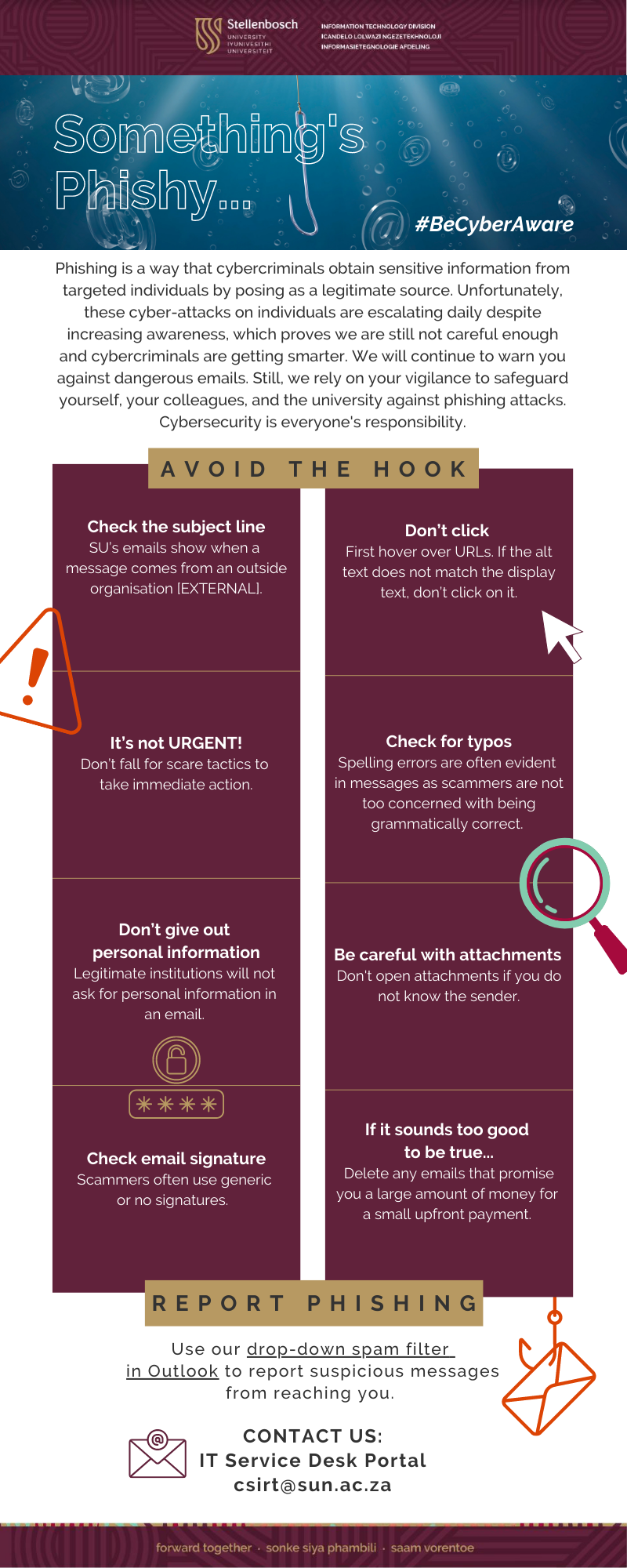
About six years ago, when Dr Denisha Jairam-Owthar was working as Chief Information Officer for the City of Johannesburg, the city was subjected to a massive cyber-attack which brought the organisation to a grinding halt. Hackers got into the city’s network and demanded money. The metro – the biggest in South Africa – had to switch to disaster recovery mode and all systems had to be shut down.
“That was when I experienced, first hand, the magnitude of a cyber-attack on this scale,” Dr Jairam-Owthar said.
“When this sort of attack happens, the whole technical team faces a mammoth, urgent task. You have to look at every single system and find out where the vulnerability was. While you’re doing all this, you must ensure the organisation can continue to operate. This must all happen in parallel. There is no level of tracking or planning on paper that can prepare you for that day.”
At the time of the cyber-attack, Dr Jairam-Owthar had a four-month-old son. But that didn’t stop her from joining her team in working a gruelling 90 hours a week. “My staff and I brought sleeping bags so that we could sleep at the office, working shifts, sleeping for three or four hours at a time, manning our nerve centre to technically unravel this cyber-attack.” Her baby became sick from not seeing his mum, and the paediatrician asked what was happening at home. She explained that she was dealing with a crisis – and had no option but to soldier on.
Fast forward to today – and, as Stellenbosch University’s Chief Director: Information Technology Division, Dr Jairam-Owthar is always, on high alert for cyber-attacks on the campus. “Cybersecurity is one of those things that keeps me awake at night,” she said.
In an extensive interview, Dr Jairam-Owthar (39), who took up the position in January this year, was reassuring that SU is in safe hands. But with risks always at play, she stressed that cybersecurity should be “everybody’s business” on campus.

“Cybersecurity is a hot topic, because it is becoming increasingly prevalent. We see cyber-attacks on prominent organisations on a daily basis. They might have all the controls in place, but it just takes that one vulnerability to probe the weakness to come through – and before you know it, the entire network has been permeated. It is not a matter of if a cyber-attack is going to happen … it’s a matter of when,” she said.
“CIOs have no option but to ensure that their cybersecurity systems are well resourced and resilient. The cost impacts on organisations and on society as a whole can be very difficult to come back from. Every CIO must be ready for when this happens and know how to respond – on a technical level, and on other levels, like how the institution deals with the situation.”
Dr Jairam-Owthar said the Covid-19-driven switch to digital acceleration has contributed hugely to the growth in cybercrime. “So many people suddenly found themselves working from home and depending on digital platforms. Cyber criminals quickly understood they could exploit this situation. Hackers are also highly aware that, in developing economies, many institutions do not update and upgrade their technology and infrastructure, and that’s where the vulnerability sits. These very intelligent hackers know we are challenged with funding, to keep up with technology. This is why countries in Africa become targets.”
Moving to why cybersecurity is so important for SU, she said: “This is an institution of real excellence in academics and research. We have researchers across many faculties, and there is so much research data in the system. Ethics in research is so critical. You cannot release the data unless you have followed all the processes. It is absolutely vital to ensure that the data, network and our online systems is well secured.
“On top of this, the system contains a great deal of students’ personal information – their exam marks, certificates and their whole student life cycle information. This could all be affected in a cyber-attack. When an attack happens, the reputation of the entire university comes into question, and those who fund research could become sceptical.
“I have to be able to say to my bosses at SU, hand on heart, that I’ve done everything I can to protect all our systems, network and information.”

Giving strong reassurance that SU is in safe hands, Dr Jairam-Owthar said cybersecurity was high on her agenda when she joined the university in January. “With the support of the university’s leadership, we did an assessment of where we stand. It found that we are well within the industry norm but there’s a lot more to do because, when it comes to cybersecurity, we are faced with a moving target. We cannot be static or complacent about it. So while we are fine in terms of the industry norm, we have to always drive to improve. The most critical challenge for CIOs is to keep up with this moving target of cybersecurity.
“We do have our controls in place as a university, but … even if we put in excellent controls; someone in Amsterdam for example can find a vulnerability. We have to be on the pulse, staying ahead of the target – because it is moving all the time.”
Dr Jairam-Owthar said there is also the issue of balancing costs. “Our partnerships with our vendors, such as Microsoft, become critical. We have to consistently ensure our vendors deliver value. The skill lies in balancing shrinking budgets with moving targets and higher expectations of technology.”
When she was at the City of Johannesburg, Dr Jairam-Owthar played a key role in the institution’s IT Digital Transformation. Passionate about education, she believes her role at SU is to enable education through technology at SU, because IT is a ‘critical enabler’ in the transformation of education”.
“The impact of what we do is to enable students and staff to be educated. That is the part that speaks to me as a person. Education holds a place in my heart.”
Dr Jairam-Owthar said the university recently did an analysis using the National Information Security Technology (NIST) cybersecurity framework.
“The NIST is a tool which does a full analysis of the entire IT environment and where the weaknesses lie, and how to prioritise to close the gap. That report has been done, and we are engaging on it in terms of priority and the budget to start implementing it to strengthen our controls and security,” she said.
Turning back to the incident at the City of Johannesburg, Dr Jairam-Owthar said it was “like walking through fire”.
“It’s like having an intruder in your home, and you are standing in the house and you don’t know which door the intruder came in. I never want anyone to go through that again. I wouldn’t wish it on anyone. We need to be well prepared.”
Asked what her main message to SU students and staff is when it comes to cybersecurity, she said:
“My main message is that cybersecurity is everyone’s responsibility, not just that of the IT Division. Everyone on campus – staff and students – need to play their role. To stress the importance of this, we will soon launch our cybersecurity training aimed at strengthening our human firewall which is the staff and students. Everyone on the campus, must do their bit to strengthen this human firewall.

“SU has such excellence in academia and research. Let’s work together to find the gaps and strengthen the systems. It’s the simple things like don’t share your passwords, make sure you authenticate when you get on the network, don’t go to sites that look odd; being able identify a phishing email. Check with us if you are not sure. If you get an email that doesn’t sound right, talk to us and we will guide you. Most cyber-attacks come through the human firewall. We cannot work in silos for cybersecurity either. We need a holistic approach for SU for cybersecurity. Lastly, make sure you do the training, it will empower you on what to look out for.”
When Dr Jairam-Owthar looks at her son, now a healthy, happy hi-tech six-year-old, she sees a boy who “handles a phone, an Ipad and a computer all at once”.
“It is for this generation that we need to bring the university into the digital fourth industrial revolution.
“I say to my IT staff that; our primary stakeholders are the 33 000 students and the 3500 staff of this university. I want to know what our primary stakeholders look for in technology so we can meet their demands in a safe and secure way, where we are also implementing a key principle of ‘security by design’ on any technologies we implement”.
Image credit: Formatoriginalphotos



 Due to critical maintenance by TENET, our internet service provider, internet services will be down on Sunday, 27 February from 00:00 am to 03:00 am.
Due to critical maintenance by TENET, our internet service provider, internet services will be down on Sunday, 27 February from 00:00 am to 03:00 am. DELIVERIES:
DELIVERIES: